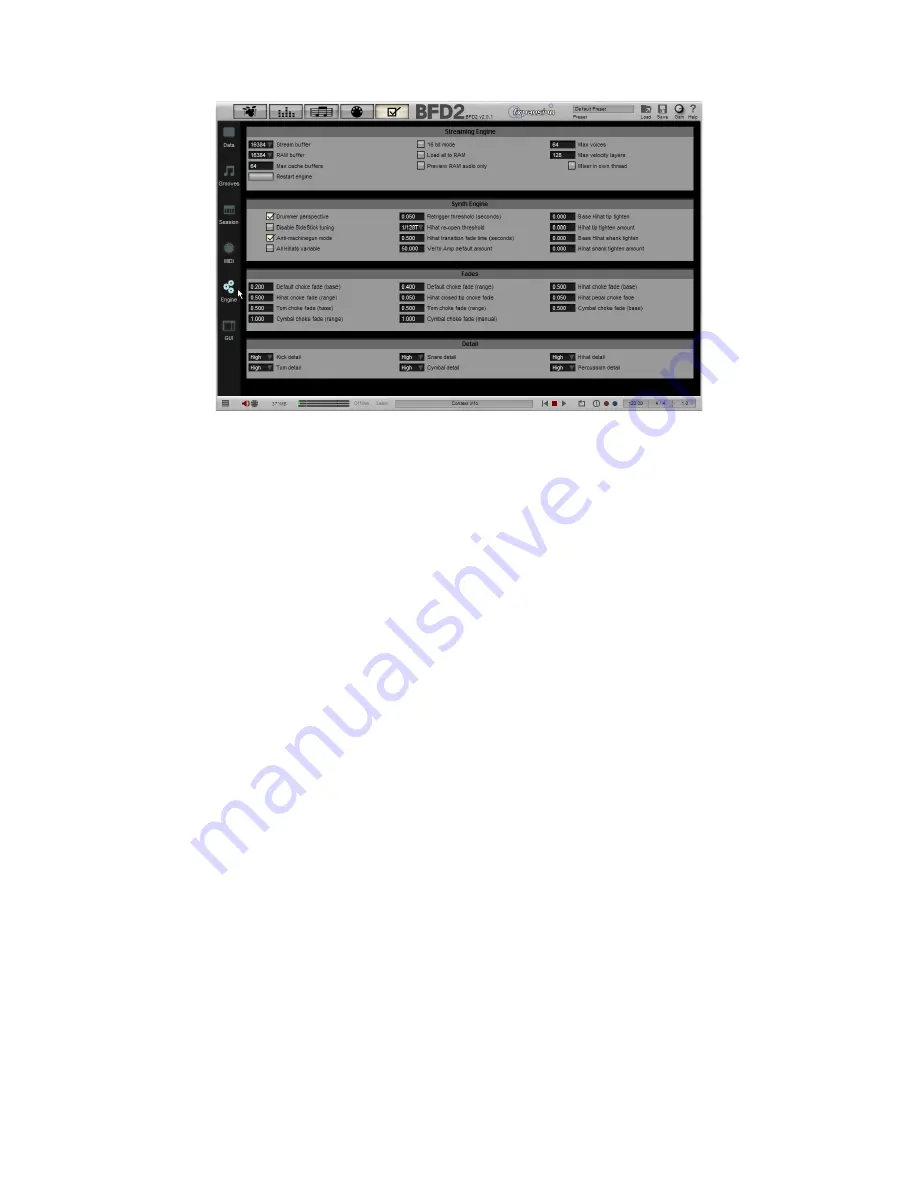
1
10:6 Engine preferences
Streaming Engine
Load all to RAM
With the Load all to RAM setting enabled, BFD2 loads the entire kit to RAM, and no data is streamed from the disk.
Please ensure you have enough RAM before using this option!
The size of each kit-piece is shown in the Info tab of the kit-piece chooser panels. To use this option with the highest kit-piece de-
tail levels, you would realistically require several gigabytes of RAM. However, if you use this option in conjunction with 16 bit mode
and a low Maximum velocity layers value, it can be a viable option when using smaller amounts of RAM.
16 bit mode
In this mode, sample data is loaded into RAM and streamed from disk at 16 bit instead of 24 bit. Because 24 bit data is stored in
memory as 32 bit floats, using 16 bit mode effectively halves the memory footprint required by BFD2.
Preview RAM audio only
This setting makes BFD2 play only the initial part of the sounds which are held in RAM, with no disk streaming taking place. It can
be useful as a preview mode while composing in order to avoid disk usage, and disabled during mixdown. The actual amount of
each sound stored in RAM is determined by the RAM Buffer setting.
Mixer in own thread
If you have a multi-core CPU, you may want to enable this option to devote one of the cores to BFD2’s mixer engine. Please note
that this mode increases latency by one host buffer (usually this is defined by the buffer size setting for your audio card). This is
for technical reasons and is unavoidable.
Restart engine
If you change any of the following settings, it is necessary to click the Restart engine button in order to make them active:
• Load all to RAM
• 16 bit mode
• RAM buffer
• Stream buffer
• Max cache buffers
• Max velocity layers
If any kit-pieces are currently loaded when this function is used, BFD2 reloads them automatically using the new settings.






































